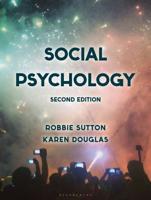Publisher's Synopsis
"Studying Lives Through Time" presents a state-of-the-art survey of the methodology and substance of longitudinal research in personality development. Chapters focused on the methodology of longitudinal study examine the use of longitudinal data archives, the comparison of longitudinal studies with one another, the use of observer judgements in personality research, the use of Q-sorts, the structure of the personality trait domain, the analysis of overlapping yet distinctive constructs (such as conformity and consciousness), and the necessity of considering the interaction of many factors in understanding developmental processes. Chapters focused on substantive findings examine the use of interpersonal memories to assess the important themes of an individual's life, the basis of depression, the consequences of poor child-rearing practices, the long-term processes of secure and insecure attachment in early childhood, the basis of vulnerability and resilience in relation to risky environments, and cognitive-experiential self-theory.









